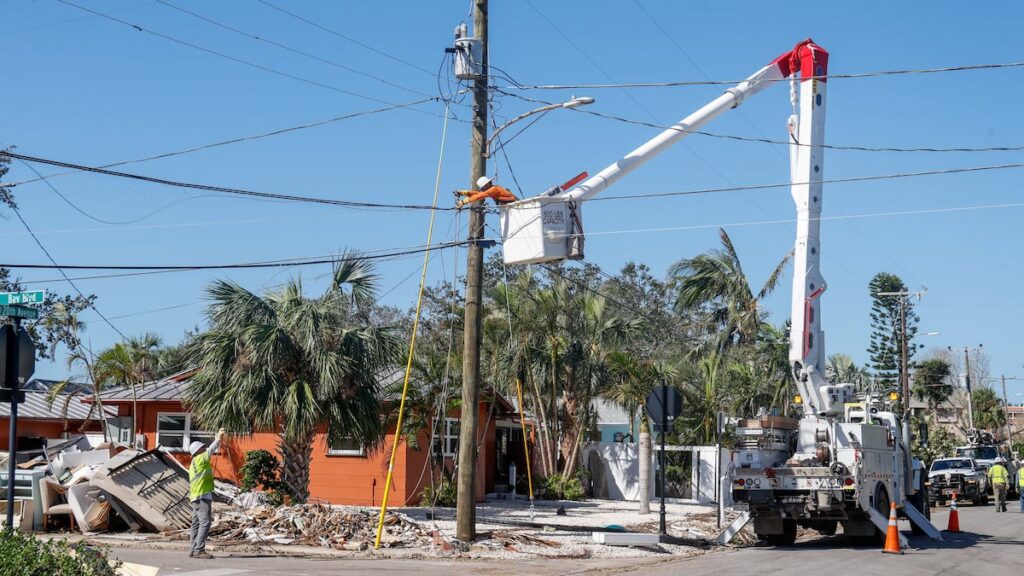A few years ago, when a historic winter storm caused a blackout, millions of Texans remained frozen in the darkness. Storms weren’t the only failure. It was a failure to invest in preparation, regulation and energy resilience. With Florida’s vulnerability to hurricanes and growing energy demand, a new hurricane season is approaching, so Florida can’t afford to make the same mistake.
Now, as Canada imposes tariffs on electricity exports, energy security is once again a national concern. Florida may not depend on Canadian energy, but that doesn’t mean we are immune to an increasingly unstable energy market. If shortages or price spikes hit other areas, Florida finds itself isolated and has struggled to get power when needed.
At Florida Taxwatch, we believe protecting taxpayers means planning ahead. The April 2021 briefing reviewed efforts to settle Florida’s electricity market, and not only learned from recent blackouts in Texas, but energy reliability is not about maintaining the lights, but ensuring the long-term sustainability of Florida’s growth. More must be done to ensure an electrical infrastructure grid before a disaster occurs.
The hidden costs of inaction
Florida’s power grid faces installation of risks, from hurricanes to cyber threats and supply chain disruptions. Without investment in grid infrastructure, power outages will be more frequent, longer lasting and costly. Every hour of lost electricity costs, millions of dollars of productivity is lost. For hospitals, emergency responders, and vulnerable Floridians, power loss is not just an inconvenience, it is a life-threatening risk.
Beyond physical threats, economic forces pose risks as well. Recent Canadian tariffs highlight how external factors affect the energy market. Florida may not import Canadian electricity, but it relies on fuel and equipment supply chains that can be destroyed by trade tensions and changes in domestic regulations.
Roadmap for Energy Security
First, Florida must continue to strengthen its electric grid against storms. The state has been a leader in hurricane preparations, but modernizing the grid must remain a top priority. Investments in underground power generation, microgrids, and resilient infrastructure can prevent long-term outages when harsh weather inevitably attacks. A storm-hardened grid means faster recovery, lower costs and less disruption for businesses and residents. It also means that there will be less disruption in our food supply and dramatically strengthen our nation and national security.
Cybersecurity protection is also a central part of Florida’s energy strategy. The rise of cyberattacks on critical infrastructure poses real, growing threats, with power grids being the main target. Florida must invest in cutting-edge cybersecurity measures to disrupt the power system, shut down essential services, and protect against bad actors that could cause widespread economic damage and potential loss of life and property.
Finally, policymakers must balance the right balance in regulatory oversight. Smart regulations can ensure accountability and prevent obstacles as seen in Texas, but excessive deficits can curb the innovation and investment needed to build a stronger grid. Florida must remain cautious in reviewing energy policy to promote reliability, promote private investment and protect taxpayers from unnecessary cost burdens.
Spend your days with Hayes
Subscribe to our free Stephenly newsletter
Columnist Stephanie Hayes shares thoughts, feelings and interesting business with you every Monday.
You’re all signed up!
Want more free weekly newsletters in your inbox? Let’s get started.
Check out all options
The cost of preparation is low
If Florida doesn’t act now, the price tag will be much larger later. Grid obstacles do not only affect homes and businesses. They can cause economic downturns, drive investors away, putting Florida’s reputation, happiness and security at risk.
Taxpayers deserve a plan to ensure that Florida’s energy future is stable, safe and affordable. Our state has previously guided disaster preparedness. Now we need to ensure the same thing on the grid.
Dominique M. Calabro is president and CEO of Florida Taxwatch.

